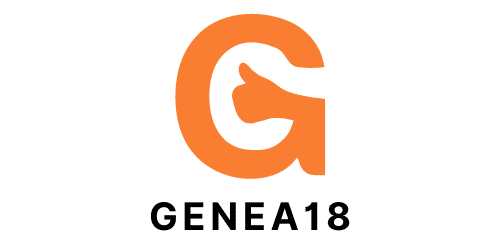How Does Learning a New Language Benefit Brain Health in the Elderly?

Learning a new language is often regarded as a task for the young, yet recent studies have shown that older adults can benefit significantly from this cognitive training. Beyond the joy of being bilingual, learning a foreign language can contribute to brain health and delay aging effects. You may wonder whether it’s too late to become a language scholar. The answer is a resounding ‘no’.
In this article, we will delve into the complex relationship between language learning and brain health, particularly for older adults. We will examine credible studies from platforms such as Google Scholar, Crossref, and PubMed, shedding light on the impact of bilingualism on aging and cognitive abilities.
Additional reading : What Specific Role Does Lutein Play in Supporting Retinal Health?
The Cognitive Benefits of Learning a New Language at an Older Age
Many might assume that aging impedes language learning. After all, isn’t it said that children are the best language learners? However, this common assumption may not be entirely accurate.
According to a study published on PubMed, older adults can indeed learn new languages effectively, and this learning process brings about numerous cognitive benefits. Contrary to popular belief, learning a new language is not just about memorizing vocabulary and grammatical rules. It also involves problem-solving, pattern recognition and multitasking, all of which boost cognitive functioning.
Also to see : Can Virtual Reality Travel Experiences Have Therapeutic Effects on Hospice Patients?
Moreover, another group of researchers found that bilingual older adults outperformed their monolingual peers in attention and task-switching tests. These findings indicate that learning a second language can induce beneficial cognitive changes, regardless of when one starts this journey.
The Impact of Bilingualism on Brain Aging
While the cognitive benefits of learning a new language are clear, how does bilingualism influence brain aging?
Several studies from Google Scholar and Crossref reveal that bilingualism can slow down cognitive decline. In a comparative study, bilingual older adults exhibited more resistance to dementia and Alzheimer’s disease than monolinguals. It turns out, managing two languages keeps the brain active and healthy, which could slow down the aging process.
The bilingual brain shows a higher level of cognitive reserve, a term that indicates the brain’s resilience to damage. As a result, bilingual individuals could maintain their cognitive functions for a longer period despite aging or brain injuries.
Language Learning as a Form of Brain Training
If we consider the brain as a muscle, then learning a language can be seen as an intensive workout. The mental effort required for learning and practicing a new language can boost our cognitive fitness.
Research from a study indexed in PubMed suggests that language learning can improve memory performance and enhance attention control. More importantly, these improvements were more notable in older adults who engaged in language learning, compared to those who did not.
With consistent language training, older adults could strengthen their cognitive abilities, just like exercising regularly would enhance physical fitness. Learning a foreign language is essentially a form of cognitive training that promotes brain health.
The Social Benefits of Bilingualism for the Elderly
Apart from cognitive benefits and aging resistance, bilingualism also offers significant social advantages. Learning a new language opens doors to different cultures and communities. For older adults, this could mean more opportunities for social interaction and cultural engagement.
A group of researchers found that older bilingual adults tend to have a more active social life. Communicating in a second language can forge deeper connections with others and foster a sense of belonging. Notably, social engagement is also linked to better cognitive health, forming a positive feedback loop.
Implementing Language Learning as a Strategy in Aging
Given the profound benefits of bilingualism for older adults, one might argue for integrating language learning into aging strategies.
Language learning programs can be incorporated into community centres, nursing homes, or even offered online. A study published on Google Scholar showed that even short-term language learning can yield positive cognitive outcomes.
Additionally, digital platforms like language learning apps can offer older adults flexibility and personalized learning experiences. It’s never too late to become a language scholar. All it takes is the willingness to start.
In conclusion, learning a new language is a rewarding endeavor for older adults, bringing cognitive, social, and health benefits. It is time to challenge the age-old belief that language learning is a young person’s game. The evidence suggests that it might be just as vital for the older generation.
The Role of Brain Health in Mitigating Cognitive Decline
Understanding the impact of language learning on brain health is crucial, particularly when it comes to reducing the risk of cognitive decline and Alzheimer’s disease. Learning a new language isn’t only about learning new words and grammatical structures. It’s a comprehensive mental exercise that demands focus, creativity, and cognitive flexibility.
According to a PubMed study, bilingualism can induce neuroplastic changes in the brain, strengthening the white matter that helps in information relay in the brain. This phenomenon is associated with better brain health and a lower risk of cognitive decline.
The learning and use of a second language can stimulate brain regions associated with attention and memory. This keeps the brain active and healthy, which in turn slows down cognitive aging. Furthermore, the mental stimulation provided by learning a new language can also help in rehabilitating white matter integrity in older adults, thus mitigating the effects of Alzheimer’s disease.
Implementing language training in daily routines can serve as a preventive measure against cognitive decline. Through regular practice and exposure to a foreign language, older adults can maintain and even improve their cognitive function, promoting healthier aging.
Embracing Language Learning for a Healthier Aging Process
In light of the compelling evidence, embracing language learning offers a proactive approach to enhance cognitive health and social engagement in older adults. Beyond the cognitive benefits, learning a new language can also serve as a tool for cultural exploration and social interaction.
Evidence from a Google Scholar article suggests that bilingual older adults exhibit higher levels of social participation. The process of learning and communicating in a second language can foster a stronger sense of community, encouraging continuous social engagement. This is important as social isolation is often associated with faster cognitive decline. Therefore, language learning can provide a fun and engaging way to stay mentally and socially active.
In essence, learning a new language is not just about acquiring a new skill. It’s a multi-faceted experience that can significantly contribute to a healthier and more fulfilling aging process.
Conclusion
The benefits of learning a second language extend beyond the cognitive to encompass social and health advantages. For older adults, language learning can be a powerful tool in maintaining brain health, mitigating cognitive decline, and promoting social interaction. The beauty of language learning is that it is never too late to start. Even if one begins in later life, the benefits are still significant and impactful.
In the vast digital world we live in, numerous resources, ranging from online courses to language learning apps, make it simpler and more accessible for older adults to embark on the journey of learning a new language. As research continues to unveil the immense benefits of bilingualism for brain health, it is clear that language learning deserves a prominent spot in our strategies for healthier aging. Let’s embrace the joy of being bilingual and unlock the door to cognitive fitness, social engagement, and brain health.
